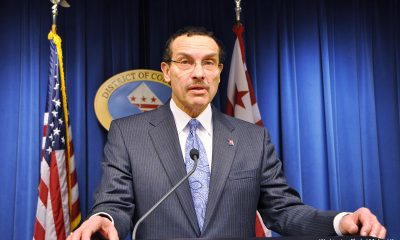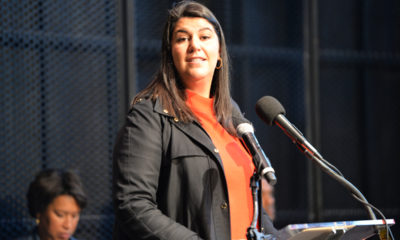Local
LGBT activists saddened, angry over Kwame Brown resignation, criminal charge
Catania calls on mayor to ‘provide answers’ or resign
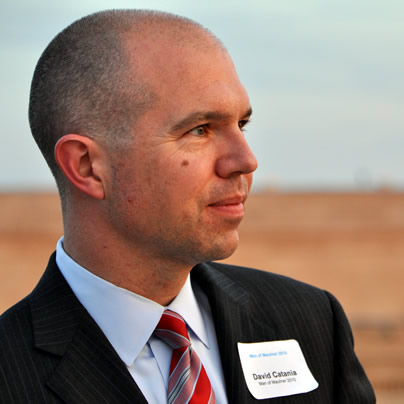
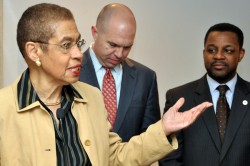
Eleanor Holmes Norton & openly gay City Council member David Catania speak with Kwame Brown. (Washington Blade file photo by Michael Key)
LGBT activists joined fellow D.C. residents in expressing sadness and anger over an ongoing city corruption investigation that led to the resignation Wednesday night of D.C. Council Chair Kwame Brown (D-At-Large).
Brown’s resignation came hours after federal prosecutors charged him with committing felony bank fraud. Sources familiar with the case said he was expected to plead guilty to the charge at a hearing scheduled for 11 a.m. Friday at the U.S. District Court for the District of Columbia.
An atmosphere of tension and uncertainty within the city government over Brown’s predicament intensified when gay D.C. Council member David Catania (I-At-Large) called on Mayor Vincent Gray to resign if he continues to refuse to publicly answer questions about a separate investigation into alleged wrong-doing in his 2010 election campaign.
In an interview with Fox 5 TV News, Catania said, “The time has come, especially in light of what we expect to happen with the chairman today, for the mayor to provide answers to the questions that people have regarding his campaign or return as a private citizen and address those issues.”
Catania appeared to express what many observers at the Wilson Building, which serves as D.C.’s City Hall, were saying privately.
“The Wilson Building has been transformed into a rumor mill and, you know, people simply speculate as to when the next shoe will drop,” he told Fox 5 News. “Enough is enough.”
Brown’s resignation came five months after D.C. Council member Harry Thomas (D-Ward 5) resigned less than a week before he was charged with embezzling $350,000 in city funds. Thomas pleaded guilty to the charge and was sentenced in May to 38 months in jail.
Last month, two high-level officials in Gray’s 2010 mayoral election campaign pleaded guilty to campaign finance violations. The violations involved illegally diverting campaign funds to pay a minor mayoral candidate to stay in the race and harass and heckle then Mayor Adrian Fenty, Gray’s main rival in the election.
Gray has said he knew nothing about the scheme, and no evidence has surfaced to indicate he engaged in an illegal act in connection with the payoff to candidate Sulaimon Brown. But sources familiar with the case say federal prosecutors continue to investigate whether Gray and others were involved in the scheme.
On Wednesday, prosecutors with the United States Attorney’s Office for the District of Columbia filed a charging document called a criminal information against Council Chair Brown accusing him of engaging in bank fraud.
The document says that between August 2005 and August 2007 Brown “knowingly and willfully devised a scheme and artifice to defraud Industrial Bank, N.A.” It says the alleged scheme involved obtaining a home equity loan from the bank to buy a boat by falsifying loan application documents that overstated his income by “tens of thousands of dollars.”
Sources familiar with the case said Brown consented to the criminal information and waived his right to have the allegation brought before a grand jury. Defendants who select the criminal information option almost always agree to an offer by the government to plead guilty in exchange for a less severe charge or a promise by the government to seek a more lenient sentence, according to court observers.
“I hereby resign my position as Chairman of the Council of the District of Columbia effective immediately,” Brown said in a letter he submitted to the Council’s secretary at 4:29 p.m. Wednesday.
“I have made some very serious mistakes in judgment for which I will take full responsibility,” he said in the letter. “I have behaved in ways that I should not have. I was wrong, and I will face the consequences of that conduct,” he said.
“This is a grim day,” said Rick Rosendall, vice president for political affairs of the Gay and Lesbian Activists Alliance. “Kwame Brown was an ally of the LGBT community, if not in the top rank.”
Rosendall noted that Brown wasn’t an early supporter of same-sex marriage and he didn’t support a bill to allow gay clubs displaced by the Washington Nationals baseball stadium to move to new locations. But Rosendall said Brown “redeemed himself in recent years, including by co-introducing the marriage equality bill.”
Gay Democratic and Ward 8 activist Phil Pannell called Brown’s resignation “heart breaking,” saying he worked on all of Brown’s election campaigns. When Brown ran for the Council Chair position Pannell arranged for him to visit gay bars across the city, helping Brown build support from LGBT voters.
Pannell and Lateefah Williams, president of the Gertrude Stein Democratic Club, the city’s largest LGBT political group, said Brown’s departure from the Council would not change the Council’s overall strong support for LGBT related issues.
“My immediate reaction is this won’t have an impact on our community,” Williams said in referring to LGBT support on the Council.
“It is always sad when someone people trust and respect does something to betray that,” said gay Democratic activist Peter Rosenstein. “Kwame Brown will have to pay the consequences but the District is doing well and we need to focus on that and esure that whatever the result of his transgressions are they don’t impact the greater good of the people.”
Council members Phil Mendelson and Vincent Orange, both At-Large Democrats, are believed to be the two candidates in contention for the post of interim chair. Under the city’s Home Rule Charter, the Council has authority to elect an interim chair if the Council chair position becomes vacant. Under the charter, the Council’s four at-large members are the only ones eligible for the interim chair position.
The interim chair serves until a new permanent chair is chosen in a special city election. Sources familiar with the Council have said Mendelson appears to be the favorite for the interim post.
Under the Home Rule Charter, Council member Mary Cheh, who holds the position of president pro tempore of the Council, became the Council’s acting chair until the Council elects the interim chair. Cheh said she has called a special Council meeting for June 13 for the purpose of allowing the Council to elect the interim chair.
Cheh is a strong support of LGBT rights.
Like other political activists, gay Democratic activist Brad Lewis, a former Stein Club president and resident of Ward 8, said he was angered as well as saddened over the Kwame Brown resignation.
“In a short period of time we have had two elected officials resign after being charged with a felony,” Lewis said. “This doesn’t look good for us as a city. It doesn’t help us in our effort to expand home rule and obtain budget autonomy,” he said in referring to longstanding efforts by the city to end Congress’s power to give final approval to the city’s budget.
Pointing to ongoing investigations of other Council members and the mayor, Lewis added, “It seems like half of our officials are under investigation. It all stems from greed and ego. People feel they are above the law.”
D.C. gay Republican leaders Bob Kabel and Robert Turner echoed Lewis’s sentiment. Kabel is chair of the D.C. Republican Party. Turner is president of the D.C. Log Cabin Republicans, a gay political group.
“Our city deserves better than this,” Kabel said in a statement. “The charges against Kwame Brown are serious and are a result of elected officials feeling entitled to benefits they don’t deserve.”
Kabel added, “Until District residents begin electing Republican officials, our city will continue to endure similar embarrassments and unethical behavior from our elected officials.”
Turner said he was troubled that two members of the City Council have resigned over corruption scandals within a period of barely six months.
“Kwame Brown says he wants to take the honorable course by resigning,” Turner said. “The honorable course is not to commit fraud in the first place…Sadly, the question on everybody’s mind is ‘who’s next?’”
Rehoboth Beach
Selling Rehoboth: Lee Ann Wilkinson wins prestigious real estate award
Longtime agent on beach prices, her LGBTQ allyship, and more
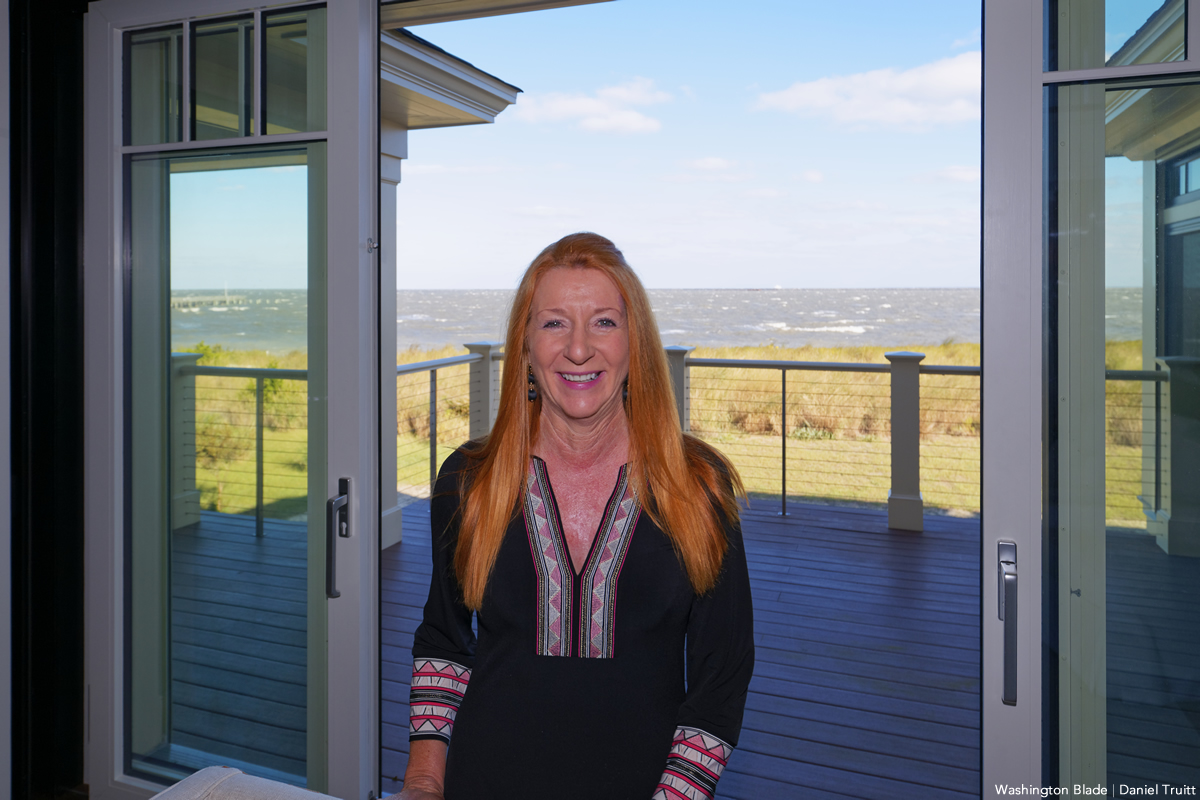
Longtime Delaware real estate leader Lee Ann Wilkinson of Berkshire Hathaway recently celebrated a major industry award after being named No. 1 in total sales volume for the Berkshire Hathaway HomeServices Network. Wilkinson, a Blade contributor, centers much of her work in the coastal communities of Lewes and Rehoboth Beach. We caught up with her to discuss her long career in real estate, her LGBTQ allyship, and more.
Washington Blade: I learned your parents were in real estate, and you began working with them early on in your career. Did you initially intend to follow in their footsteps?
Lee Ann Wilkinson: Not really. I majored in art. When I got out of college I couldn’t really find a job. So, my parents said, “You need to come work for us.”
Blade: I understand that as an art history major turned writer. Speaking of that: I know you have written some pieces for the Blade, about real estate trends, and the like. How do you pick your topics for these articles?
Wilkinson: People always want to know about real estate. Whether buying a first home, second home, a home to invest or retire in. It amazes even me how much interest there is. And it’s not just people looking to buy a $7 million home on beachfront property. It’s people looking to get something in budget for their family.
Blade: I know you have a lot of work in Rehoboth, the Delaware Valley’s historically gay beachside community. Was there ever a time you were NOT selling property to – I guess it was fair to say 40 years ago – mostly gay men?
Wilkinson: Ha, I grew up coming down for the summer until my family moved here full-time from Norristown, outside of Philly. We had businesses and family in Rehoboth. I think Rehoboth has always been gay-friendly. We never thought about it. My grandfather had a house in Rehoboth before I was born. The gay population was always welcome.
Blade: Do you have a connection to the LGBTQ community beyond real estate?
Wilkinson: Absolutely. One of my closest friends is a guy I went to college with at the University of Delaware, Joey. You know, Joey was maybe my first gay friend. In fact, we all went to the Easter Sunrise Service on the beach in Rehoboth. We have gay family members, so I have never thought that much about it being anything different.
Blade: I know you recently won a prestigious award with Berkshire Hathaway and were surprised to come in first place. Why?
Wilkinson: For the past 20 years or so we have been in the top 10. We started doing these national things with Berkshire Hathaway. To get in the top 10 was amazing to me especially going up against states like Florida, New Jersey, not to mention San Francisco or Bay Area agents. I just never thought we’d get to the number one spot. My only issue is — where to go now?
Blade: Where do you make your primary residence? Is that Lewes? Do you see the president on occasion?
Wilkinson: I haven’t seen him at the beach. But he’s on the bike trail a lot. He pops up having breakfast. He goes to Mass at St. Edmond’s in Rehoboth on Saturday evening. But I’m often too busy with work on weekends to catch sight of him.
Blade: Having been in the industry 40 years, how do you find ways to get excited about your work?
Wilkinson: I really am passionate about it. I really love a challenge. That’s part of the appeal for this job. I always like matching people with things. I really liked getting people the right bathing suits years ago. Selling, it’s just something I’m good at. I would get customers walking outta’ the store with three or four bathing suits when they only wanted one.
Blade: Are you considering retiring in the next few years? Or will you always be associated with the industry on some level. Maybe as a mentor or silent partner?
Wilkinson: Oh, no, I’ll always be involved. Three of my four daughters work for me. I am not retiring anytime soon. And if I did, they would be here to continue it on, and I am sure I’d weigh in.
Blade: So, this is very much a family legacy?
Wilkinson: Yeah. My parents are 87 and 91 now. Some 20 years ago mom predicted we’d see an increase in prices, people moving here, etc. I don’t know how she predicted it but mom is right.
Blade: Any current trends you’re noticing?
Wilkinson: This cycle of people moving here, and prices increasing, and all the building happening. People think the prices are going to come down, but I don’t see that happening.
Blade: Tell me about that. Are the new building ventures changing the faces of Rehoboth and Lewes? After not visiting the Jersey Shore for over a decade I’ve been going the past few summers to my cousin’s place in Cape May. It’s a trailer on a nicely maintained campground and it’s what she can afford. And, there’s so much building happening there.
Wilkinson: Right? It’s about finding a second home you can afford. And, in terms of building projects, the good thing about Rehoboth and Lewes is they are strict on what you can and can’t build downtown. They aren’t going to tear down homes to build multi-family condos, not yet anyway. In Spring Lake, you are seeing townhomes. So, building is happening and we have some condos, but it’s great to not see “overbuilding” happening in these historically smaller cities.
To learn more about Ms. Wilkinson, or property in Sussex County, DE be sure to look for articles she publishes in the Blade and visit the Lee Ann Wilkinson Group website.
Local
Blum named director of new LGBTQ program at Carr Center
Program to expand research, training on safeguarding human rights
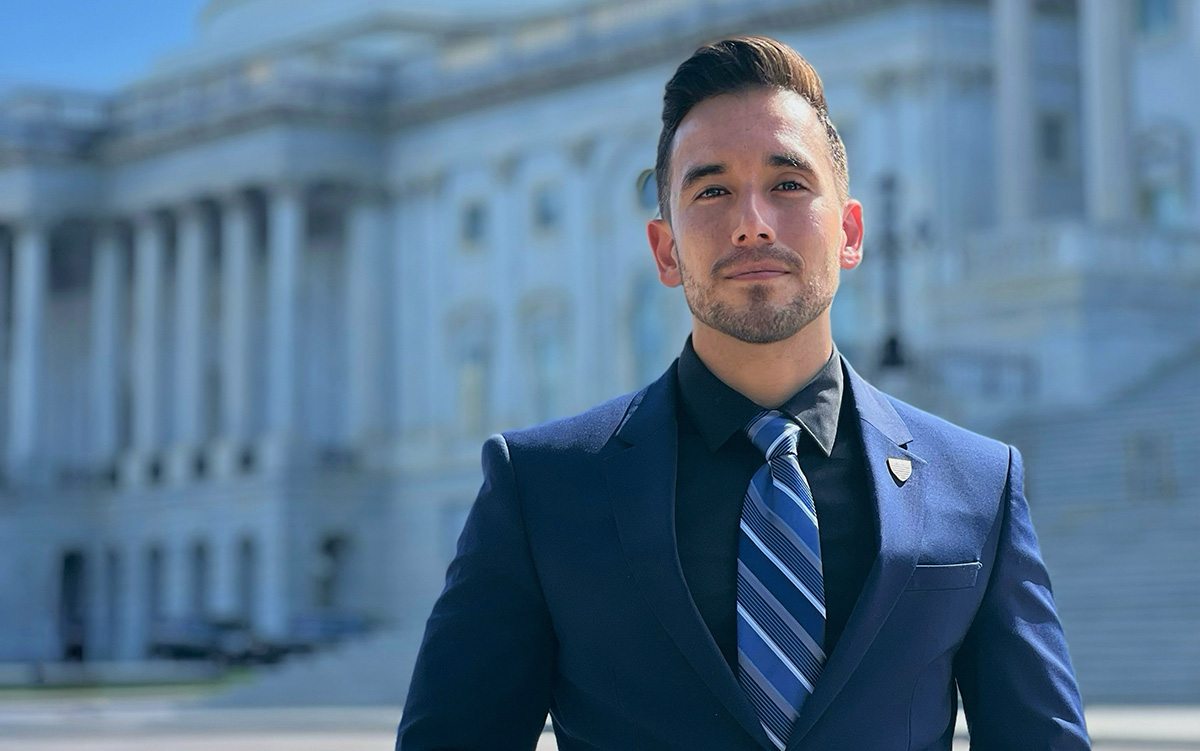
The Comings & Goings column is about sharing the professional successes of our community. We want to recognize those landing new jobs, new clients for their business, joining boards of organizations and other achievements. Please share your successes with us at: [email protected].
Congratulations to Diego Garcia Blum on his new position as director, Global LGBTQI+ Human Rights Program, at the Harvard, Carr Center for Human Rights Policy. This new program will expand research and training on safeguarding the human rights of LGBTQI+ people worldwide. It will address the escalating crisis of violence and discrimination against LGBTQI+ individuals globally. The vision is to establish the Carr Center as a key international nexus for LGBTQI+ human rights policy, training, ideas, and dialogue
“The heart of this program is empowering and supporting the brave LGBTQI+ activists working in challenging and often perilous environments,” Garcia Blum said. “Through our training and high-impact research, we aim to supercharge their efforts.”
Prior to this, he has had a varied and impressive career. Recently he served as a Social Change Fellow at Harvard’s Center for Public Leadership. He worked with the Human Rights Campaign, serving on its Board of Governors. Prior to that, he worked as a nuclear engineer at Orano, a French company. It is described as a global leader in nuclear fuel cycle products and services, from mining to dismantling, conversion, enrichment, recycling, logistics and engineering. He has won many awards for his work and education. The Innovation CORE award at Orano; The Dean Joseph Weil Leadership Award, University of Florida; Most Outstanding Master in Public Policy Student – Ellen Raphael Award, Harvard Kennedy School.
District of Columbia
Meet Jay Jones: Howard’s first trans student body president
‘Be the advocate that the child in you needed most’

Jay Jones was born to a conservative Christian family where she said being gay was not socially acceptable. This year, she was named Howard University Student Association’s first transgender president.
When Jones was younger, she enjoyed activities that are traditionally “feminine.” She said she has always had a higher-pitched voice, talked with her hands and preferred playing inside with Barbie dolls.
Jones came out as gay in eighth grade to her sister who said, “Girl, I been knew.”
“I think that was very much a turning point year for me because it was a year where I kind of knew how I was feeling,” Jones explained. “There were emotions I felt ever since I was younger, but I never could put verbiage or language to it,” she said.
That same year, Jones was elected as the first student body president of her middle school. She said that is where her leadership journey began and that year was pivotal in her life.
When Jones won her first campaign as HUSA vice president, she was feeling unsure about her gender identity after she was asked which pronouns she wanted to use.
“I said ‘I don’t really know because I don’t feel comfortable using he/him pronouns because I don’t think that expresses who I am as a person,’ but at that time, I don’t think I was to the point where ‘she/her’ was necessary,” she said.
Outside of student government, she was part of a traditionally all-male organization at Howard, Men of George Washington Carver Incorporated. There, she said she always felt like the sister to all of her brothers.
“I remember I would cringe sometimes when they would call me brother,” she said.
Even though she felt like she aligned with she/her pronouns she said she was “scared” of what it could mean for her moving forward.
She knew that her given pronouns were not a reflection of who she was but wasn’t sure what to do about it. She was talking with Eshe Ukweli, a trans journalism student who asked Jones a simple question that clarified everything.
“‘If you were to have kids or if your brother or your sister or someone around you was to have kids, what do you imagine them calling you?’ and I realized, it was always ‘mom,’ it was always ‘sister,’ and it was always ‘aunt,’” she said.
Jones still looks to Ukweli as a mentor who provides her with wisdom and guidance regularly.
“She knows what it’s like to do hormones, she understands what it’s like to be in a place of leadership and to be in a place of transition,” she said. “There is no amount of research, no amount of information, no amount of anything that you can take in, that could ever equate to that.”
In 2023, Jones’s junior year, Howard University was named the No. 1 most inclusive Historically Black College or University for LGBTQ-identifying students by BestColleges.
Howard has a storied past with the queer community. In the 1970s, Howard hosted the first National Third World Lesbian and Gay Conference, according to a 1979 Hilltop archive. However, multiple articles in the ‘90s highlighted homophobia on Howard’s campus.
“’There is the feeling … that by coming out there will be a stigma on you,” said bisexual Howard student, Zeal Harris in a 1997 Hilltop interview.
As a result, multiple LGBTQ advocacy organizations were created on Howard’s campus to combat those stigmas.
Clubs like The Bisexual, Lesbian, and Gay Organization of Students At Howard (BLAGOSAH) and the Coalition of Activist Students Celebrating The Acceptance of Diversity and Equality (CASCADE) were formed by Howard University students looking to create a safer campus for queer students.
However, Jones didn’t know much about this community when she was entering Howard. She recognized Howard as the HBCU that produced leaders in the Black community, like Thurgood Marshall, Toni Morrison, and Andrew Young.
“This university has something about turning people into trailblazers, turning people into award-winning attorneys, turning people into change makers,” she said. “I think that was one of my main reasons why I wanted to come here, I wanted to be a part of a group of people who were going to change the world.”
So, as she entered her junior year at Howard, she set out to begin her journey to changing the world by changing her school.
This school year she ran for HUSA president, the highest governing position on Howard’s campus. She said that this was the hardest campaign she has ever run at Howard and that she warned her team the night before election result announcements that she would start weeping if their names were called.
“During the midst of that campaign season, I was in an internal kind of battle with members of my family not accepting me, not embracing me, calling me things like ‘embarrassment’ and not understanding the full height of what I was trying to do and who I was becoming,” she said.
Jones said the experience was mentally draining and a grueling process but that she leaned on her religion to help her see the light at the end of the tunnel.
“I’m a very devout Christian and for me, I was like, ‘It was nothing but God that got me through, it was nothing but God that got me through this,’” she said. “If people knew what I went through you would be falling on your knees and weeping too.”
Jones said that in high school she had to really work through her relationship with God because she was raised in a church that said gay people were going to hell. So, when she came out as a trans woman she had to re-evaluate the relationship she worked so hard to create with God, again.
She reflected and realized that God didn’t use the perfect people in the Bible but that he works through everyone.
“So if God can use all of those people, what is there to say that God can’t use the queer? What is it to say that God can’t use trans people,” she said.
After she graduates next year, Jones hopes to work in campaign strategy. She said the ‘lesser of two evils’ conversation isn’t working anymore for Gen-Zers and wants to pioneer new ways for young voters to engage with politics.
“Really working on engaging and mobilizing young voters on how to understand and utilize their power, especially as it relates to Black and Brown people,” she said.
When she became vice president of HUSA last year she said she did it for for all the little Black queer children down South who haven’t gotten their chance to dance in the sun yet.
“If there was anyone ever coming in who’s trans, the No. 1 piece of advice that I can give you is, be the role model that the inner child in you needed most, be the advocate that the child in you needed most,” she said “And most importantly, be the woman that the child saw in you but was too scared to be.

-

 South America2 days ago
South America2 days agoPeruvian government classifies transgender people as mentally ill
-
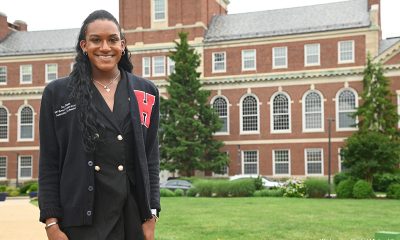
 District of Columbia2 days ago
District of Columbia2 days agoMeet Jay Jones: Howard’s first trans student body president
-
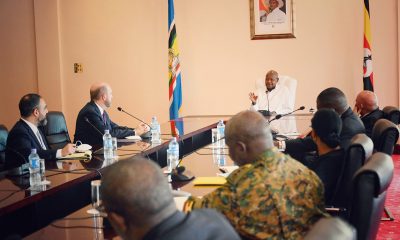
 Africa4 days ago
Africa4 days agoUgandan president meets with US ambassador
-

 LGBTQ Non-Profit Organizations4 days ago
LGBTQ Non-Profit Organizations4 days agoBlade contributor wins GLAAD Media Award

